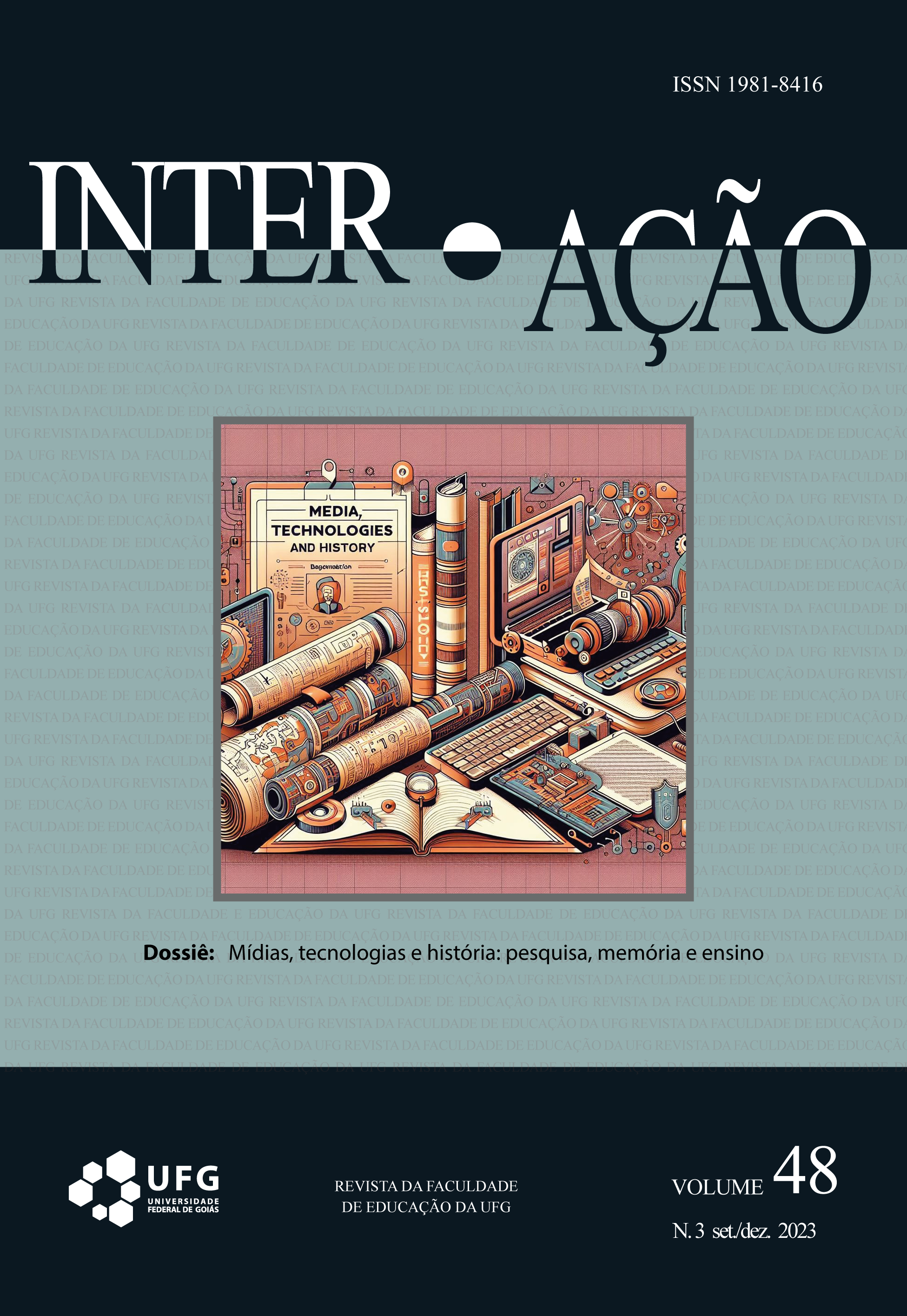O USO DE REPOSITÓRIOS DIGITAIS EM PESQUISAS DE HISTÓRIA DA EDUCAÇÃO MATEMÁTICA: REFLEXÕES APOIADAS NA CURADORIA DIGITAL
DOI:
https://doi.org/10.5216/ia.v48i3.76620Resumo
O presente artigo tem como objetivo problematizar questões relacionadas ao uso dos repositórios digitais nas pesquisas de História da Educação Matemática, utilizando-se de fontes de pesquisas que estão disponíveis de maneira virtual, por sua vez digitalizadas, e que se tornam objetos digitais. O trabalho apoia-se na operação historiográfica de Certeau (2013), no ciclo de preservação da Curadoria Digital (DCC, 2023) e apresenta algumas investigações realizadas por membros do GHEMAT-Brasil que fizeram uso do Repositório de Conteúdo Digital. As análises dos trabalhos demonstram lacunas de ordem metodológica no tratamento das fontes digitais e se propõe que sejam criados protocolos procedimentais fundamentados nas etapas do ciclo de preservação da Curadoria Digital. Conclui-se que a forma de tratamento dos objetos digitais, a organização dos metadados, bem como seu armazenamento, privilegiam essas ações com objetos digitais, agregando valor aos itens disponíveis digitalmente, indicando a necessidade de um rigor no trabalho com tais objetos.
PALAVRAS-CHAVE: Procedimentos Metodológicos; Repositório de Conteúdo Digital; Ciclo de Preservação.
Downloads
Publicado
Como Citar
Edição
Seção
Licença
Copyright (c) 2023 Janine Marques da Costa Gregorio, David Antonio da Costa

Este trabalho está licenciado sob uma licença Creative Commons Attribution-NonCommercial 4.0 International License.
A Inter-Ação utiliza como base para transferência de direitos a licença Creative Commons Attribution 4.0 para periódicos de acesso aberto (Open Archives Iniciative - OAI). Por acesso aberto entende-se a disponibilização gratuita na Internet, para que os usuários possam ler, baixar, copiar, distribuir, imprimir, pesquisar ou referenciar o texto integral dos documentos, processá-los para indexação, utilizá-los como dados de entrada de programas para softwares, ou usá-los para qualquer outro propósito legal, sem barreira financeira, legal ou técnica.
Autores que publicam neste periódico concordam com os seguintes termos:
1) Autores mantém os direitos autorais e concedem à revista o direito de primeira publicação, com o trabalho simultaneamente licenciado sob a Licença Creative Commons Attribution que permite o compartilhamento do trabalho com reconhecimento da autoria e publicação inicial nesta revista.
2) Autores têm autorização para assumir contratos adicionais separadamente, para distribuição não-exclusiva da versão do trabalho publicada nesta revista (ex.: publicar em repositório institucional ou como capítulo de livro), com reconhecimento de autoria e publicação inicial nesta revista.
3) Autores têm permissão e são estimulados a publicar e distribuir seu trabalho online (ex.: em repositórios institucionais ou na sua página pessoal) a qualquer ponto antes ou durante o processo editorial, já que isso pode gerar alterações produtivas, bem como aumentar o impacto e a citação do trabalho publicado.















